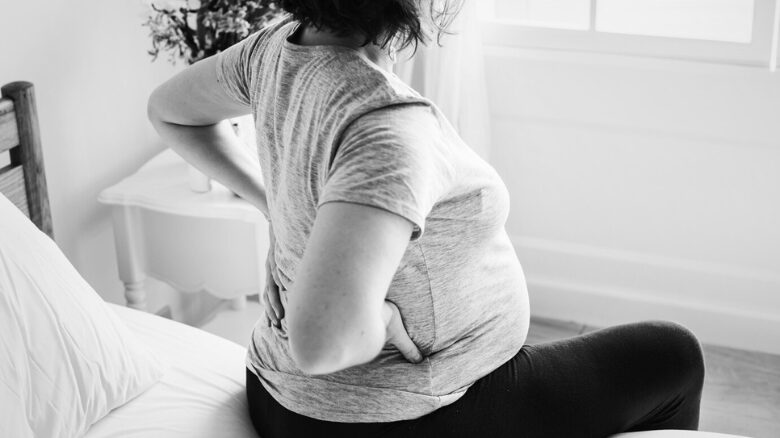
Pregnancy is often described as the most beautiful journey a woman can embark upon, yet it comes with its own set of challenges. Among these, back pain stands out as a common complaint that can make this otherwise joyous time uncomfortable. In India, where cultural practices and lifestyle can vary widely, understanding how to manage back pain during pregnancy becomes crucial. From simple lifestyle tweaks to exercises and expert advice, there are many ways to alleviate this discomfort. Could finding the right balance between traditional wisdom and modern solutions be the key to a more comfortable pregnancy?
Key Takeaways
- Discover effective techniques to manage back pain during pregnancy
- Explore the role of exercise and posture in alleviating discomfort
- Learn expert tips tailored for pregnant women in India
- Understand the importance of a supportive environment during pregnancy
- Find out how traditional practices can complement modern medicine
Dealing with Back Pain and in Pregnancy
Pregnancy-related back pain is not just an inconvenience; it can significantly affect your daily life. As your body undergoes changes to accommodate the growing baby, strains on your back can intensify. The good news? There are practical solutions that can help you manage this pain effectively, allowing you to enjoy your pregnancy to the fullest.
Understanding the Causes
Back pain during pregnancy usually arises from several factors. As your belly grows, your centre of gravity shifts forward, leading to postural changes. This shift can cause strain on your lower back. Additionally, the hormone relaxin, which prepares your pelvis for childbirth, can loosen ligaments and joints, adding to the discomfort. It's important to recognise these causes to address the pain effectively.
Exercise: Your Best Friend
Engaging in regular, gentle exercise can be your best ally in combating back pain. Activities such as prenatal yoga, swimming, and walking can strengthen the muscles supporting your back. These exercises not only improve flexibility but also boost your mood, providing a holistic approach to managing discomfort. Remember, consistency is key, and it's wise to consult with your healthcare provider before starting any new exercise regimen.
Posture Matters
Good posture can significantly alleviate back pain. As tempting as it might be to slouch, maintaining a straight back can prevent additional strain. When sitting, ensure your back is supported, and your feet rest flat on the floor. While standing, distribute your weight evenly on both feet, and avoid standing for prolonged periods. Small adjustments in how you carry yourself can make a big difference.
Expert Advice and Support
Seeking advice from healthcare professionals can provide personalised strategies to manage back pain. Physiotherapists can offer exercises tailored to your needs, while doctors might suggest safe pain relief options. In India, traditional practices such as ayurvedic massages or using herbal oils may also be recommended as complementary therapies. However, always consult your doctor before trying new treatments.
The Role of Diet and Rest
Nutrition plays a pivotal role during pregnancy. A balanced diet rich in calcium and vitamin D supports bone health, which is vital when experiencing back pain. Additionally, ensuring adequate rest and sleep can help your body recover and manage discomfort better. Creating a restful environment and using supportive pillows can enhance your sleep quality.
Traditional Wisdom Meets Modern Science
In India, traditional wisdom often complements modern healthcare practices. Yoga, a practice deeply rooted in Indian culture, offers postures specifically designed for pregnant women. Alongside this, traditional massages and herbal remedies can provide relief. Combining these age-old practices with modern science can offer a comprehensive approach to managing pregnancy-related back pain.
Building a Supportive Environment
Having a supportive environment is crucial during pregnancy. Whether it's family members helping with daily tasks or friends offering emotional support, a strong support system can ease the burden. Sharing your experiences with other pregnant women can also provide comfort and practical tips for managing back pain.
Conclusion:
Managing back pain during pregnancy involves a blend of lifestyle adjustments, exercise, traditional practices, and modern medicine. By understanding the causes and exploring various solutions, you can navigate this journey with more ease.
Get trusted care for back pain during pregnancy at Harsha Hospitals with specialized prenatal support and physiotherapy for moms-to-be.
Frequently Asked Questions
How common is back pain during pregnancy?
Back pain is a common issue during pregnancy, with studies showing that around 50-70% of pregnant women experience some form of back pain. The weight gain, hormonal changes, and shifting of the body's centre of gravity during pregnancy can all contribute to back pain.
What are some ways to alleviate back pain during pregnancy?
There are several ways to help alleviate back pain during pregnancy. These include maintaining good posture, using proper body mechanics, practicing gentle exercises like prenatal yoga or swimming, using pregnancy support belts, applying heat or cold packs to the affected area, and getting regular prenatal massages.
Is it safe to take pain medication for back pain during pregnancy?
It is important to consult with your healthcare provider before taking any medication, including over-the-counter pain relievers, during pregnancy. Some medications may not be safe for the baby, so it is best to seek professional advice before treating back pain with medication.
Can I still exercise with back pain during pregnancy?
Yes, gentle exercise can actually help alleviate back pain during pregnancy. Activities like prenatal yoga, swimming, walking, and stretching can strengthen the muscles that support the back and improve flexibility, which can help reduce pain. However, it is important to listen to your body and avoid any movements that cause discomfort.
When should I seek medical help for back pain during pregnancy?
If you experience severe or persistent back pain, pain that radiates down your legs, numbness or tingling in your legs or feet, difficulty walking, or any other concerning symptoms, it is important to seek medical help. These could be signs of a more serious issue that needs to be addressed by a healthcare provider.


